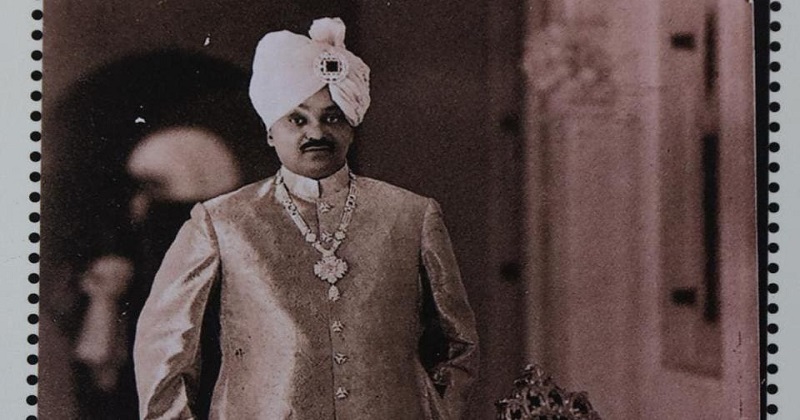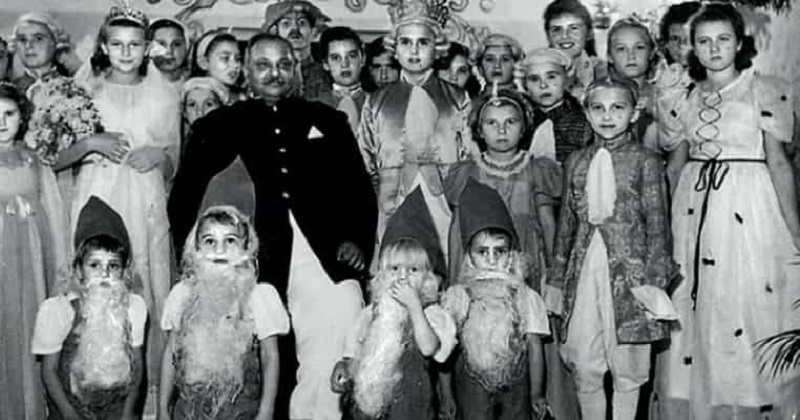
Ukrainians have fled the war-torn nation to escape the Russian attack. They have crossed into the neighboring nations to the west – Poland, Romania, Slovakia, Hungary, and Moldova. Indians too are flocking in large numbers to these checkpoints at the border between Ukraine and Poland.
According to The Indian Express, around 2,000 Indian students entered Poland on Tuesday. The students were not only allowed to enter without visas, but the Ambassador from Poland Adam Burakowski also promised that there would be special flights for the students to return to India and that the country would assist the evacuation process.
He told ANI that border points are overcrowded but the country welcomes everyone with open arms. During times of crisis, stories of kindness and empathy stand out. Jamsaheb Digvijaysinhji Ranjitsinhji Jadeja, who ruled Nawanagar in the Kathiawar region of present-day Gujarat, comes to mind. Hundreds of Polish children who had been displaced by World War II were housed by the king.

India’s little Poland
Kindertransport was an effort to transport orphans and lost children from Germany and occupied Europe to safety, months before ‘World War II’ began. It helped 10,000 children escape from the brutalities of Adolf Hitler. About 500 Polish children aged two to 17 from war-torn Poland and prison camps in the Soviet Union were put on a ship heading for India’s west coast. Traveling across Turkmenistan, Iran, Afghanistan, and Pakistan before reaching western India was arduous and lengthy.
Several ports refused the children’s entry before they reached Nawanagar. Despite being exhausted and hungry, they found a kindred spirit in Digvijaysinhji. As India was then , fighting for its independence, the task was not easy. The Maharaja, however, put all of that behind him and took the children in, caring for him as if he were their own. ‘Don’t consider yourselves orphans. You are now Nawanagaris and I am Bapu, the father of all Nawanagaris, including yourselves,’ he told them, according to a report in The Hindu. So began the story of Little Poland in a little corner of India.
Digvijaysinhji built a refugee camp in a place called Balachadi not far from his summer palace, 23 km from Jamnagar. He provided them with medical aid, shelter, and schools. He also opened a camp in Chela. To raise funds for the children, the maharaja enlisted the aid of rulers from Patiala and Baroda as well as the Tata group. For the Polish children’s needs, lakhs of rupees were gathered.
Polish refugees were encouraged to settle in other places in India by this kind gesture. From 1942 to 1948, more than 20,000 refugees passed through India. After the war, the refugees were asked to return home. Many others chose to move to Australia, the United Kingdom, or other Commonwealth nations. Digvijaysinhji bid them farewell personally at a railway station.
King’s tribute to Warsaw
Digvijaysinhji’s legacy lives on decades later. A school in Warsaw is named after the maharaja and it has a touch of India to it. Graffiti on the walls depict our classical dances and culture as well as pictures of Indian monuments. Digvijaysinhji is the patron saint of the school, which is run by the Friends of India Education Foundation.
Posthumously, the Polish government awarded the king the Commander’s Cross of the Order of the Merit of the Polish Republic, given to those who have improved Warsaw’s relations with other nations. According to The Hindu report, Warsaw also plans to name a square after Digvijaysinhji. Donald Tusk had an emotional moment when he met then-president Pratibha Patel in 2009.
The King: A documentary
A documentary titled Little Poland in India chronicles the story of the selfless king who became the saviour of orphaned children affected by war. Anu Radha, a filmmaker based in Delhi, has produced a heartwarming film. Five survivors are featured in Little Poland in India, talking about how they got a second chance at life and found a home in India. In 2013, when the film was premiered, Anu Radha had stated that there are no boundaries between human hearts. Those words resonate even today. As the Russia-Ukraine conflict rages on, hundreds of Indians are looking for help and patronage in Poland .

Post Your Comments